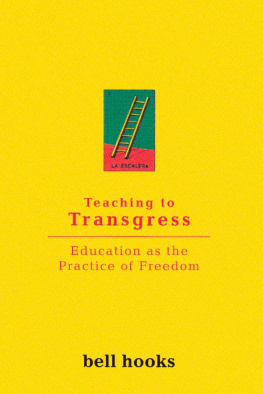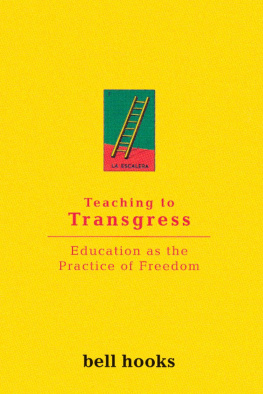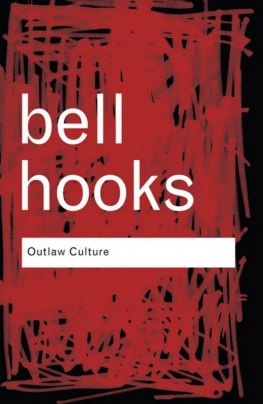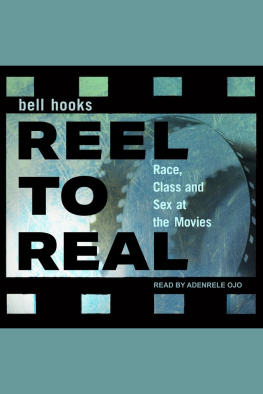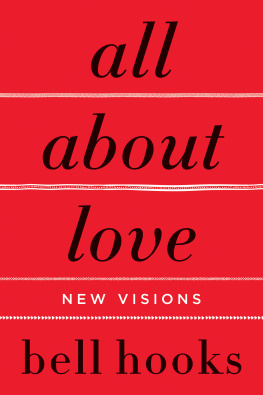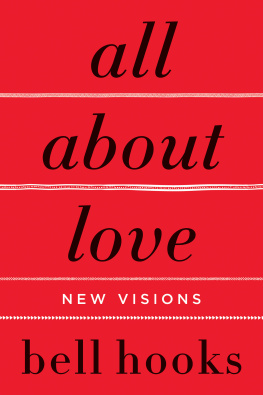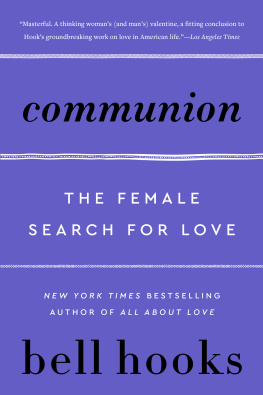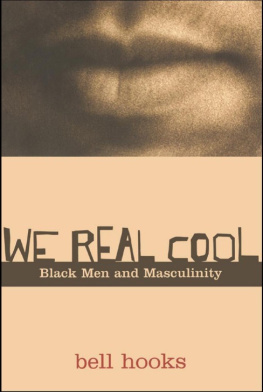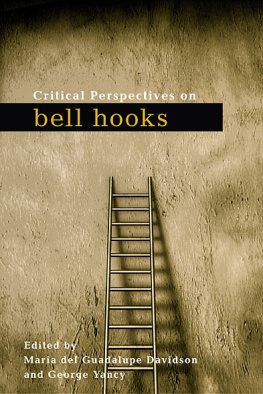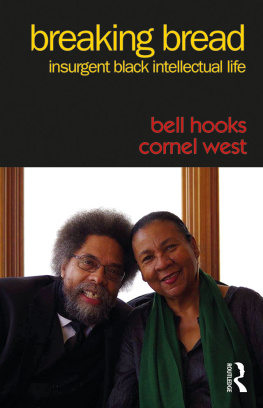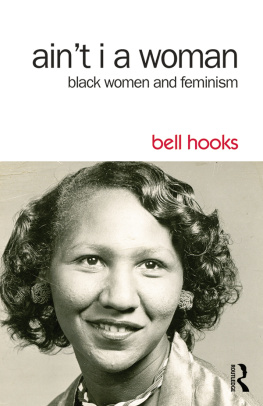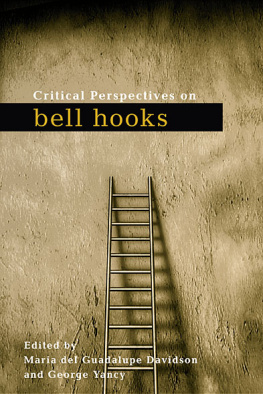bell hooks - Teaching to Transgress
Here you can read online bell hooks - Teaching to Transgress full text of the book (entire story) in english for free. Download pdf and epub, get meaning, cover and reviews about this ebook. year: 1994, publisher: Routledge, genre: Politics. Description of the work, (preface) as well as reviews are available. Best literature library LitArk.com created for fans of good reading and offers a wide selection of genres:
Romance novel
Science fiction
Adventure
Detective
Science
History
Home and family
Prose
Art
Politics
Computer
Non-fiction
Religion
Business
Children
Humor
Choose a favorite category and find really read worthwhile books. Enjoy immersion in the world of imagination, feel the emotions of the characters or learn something new for yourself, make an fascinating discovery.
- Book:Teaching to Transgress
- Author:
- Publisher:Routledge
- Genre:
- Year:1994
- Rating:4 / 5
- Favourites:Add to favourites
- Your mark:
- 80
- 1
- 2
- 3
- 4
- 5
Teaching to Transgress: summary, description and annotation
We offer to read an annotation, description, summary or preface (depends on what the author of the book "Teaching to Transgress" wrote himself). If you haven't found the necessary information about the book — write in the comments, we will try to find it.
Teaching to Transgress — read online for free the complete book (whole text) full work
Below is the text of the book, divided by pages. System saving the place of the last page read, allows you to conveniently read the book "Teaching to Transgress" online for free, without having to search again every time where you left off. Put a bookmark, and you can go to the page where you finished reading at any time.
Font size:
Interval:
Bookmark:
bell hooks
Routledge
New YorkLondon
Published in 1994 by Routledge
Taylor & Francis Group
711 Third Avenue
New York, NY 10017
Published in Great Britain by Routledge
Taylor & Francis Group
2 Park Square
Milton Park, Abingdon
Oxon OX14 4RN
Copyright 1994 Gloria Watkins
All rights reserved. No part of this book may be reprinted or reproduced or utilized in any form or by any electronic, mechanical or other means, now known or here after invented, including photocopying and recording or in any information storage or retrieval system, without permission in writing from the publishers.
Library of Congress Cataloging-in-Publication Data
hooks, bell.
Teaching to transgress : education as the practice of freedom / bell hooks
p. cm.
Includes index
ISBN0-415-90807-8ISBN0-415-90808-6 (pbk.)
1. Critical pedagogy. 2. Critical thinkingStudy and teaching. 3. Feminism and education. 4. Teaching. I. Title.
LC196.H66 1994
370.11 '5dc20
94-26248
CIP
to all my students,
especially to LaRon
who dances with angels
in gratitude for all the times we start overbegin again
renew our joy in learning.
...to begin always anew, to make, to reconstruct, and to not spoil, to refuse to bureaucratize the mind, to understand and to live life as a processlive to become...
Paulo Freire
Teaching to Transgress
In the weeks before the English Department at Oberlin College was about to decide whether or not I would be gran ted tenure, I was haunted by dreams of running awayof disappearingyes, even of dying. These dreams were not a response to fear that I would not be granted tenure. They were a response to the reality that I would be granted tenure. I was afraid that I would be trapped in the academy forever.
Instead of feeling elated when I received tenure, I fell into a deep, life-threatening depression. Since everyone around me believed that I should be relieved, thrilled, proud, I felt guilty about my real feelings and could not share them with anyone. The lecture circuit took me to sunny California and the New Age world of my sisters house in Laguna Beach where I was able to chill out for a month. When I shared my feelings with my sister (shes a therapist), she reassured me that they were entirely appropriate because, she said, You never wanted to be a teacher. Since we were little, all you ever wanted to do was write. She was right. It was always assumed by everyone else that I would become a teacher. In the apartheid South, black girls from working-class backgrounds had three career choices. We could marry. We could work as maids. We could become school teachers. And since, according to the sexist thinking of the time, men did not really desire smart women, it was assumed that signs of intelligence sealed ones fate. From grade school on, I was destined to become a teacher.
But the dream of becoming a writer was always present with in me. From childhood, I believed that I would teach and write. Writing would be the serious work, teaching would be the not-so-serious-I-need-to-make-a-living job. Writing, I believed then, was all about private longing and personal glory, but teaching was about service, giving back to ones community. For black folks teachingeducatingwas fundamentally political because it was rooted in antiracist struggle. Indeed, my all black grade schools became the location where I experienced learning as revolution.
Almost all our teachers at Booker T. Washington were black women. They were committed to nurturing intellect so that we could become scholars, thinkers, and cultural workersblack folks who used our minds. We learned early that our devotion to learning, to a life of the mind, was a counter-hegemonic act, a fundamental way to resist every strategy of white racist colonization. Though they did not define or articulate these practices in theoretical terms, my teachers were enacting a revolutionary pedagogy of resistance that was profoundly anticolonial. Within these segregated schools, black children who were deemed exceptional, gifted, were given special care. Teachers worked with and for us to ensure that we would fulfill our intellectual destiny and by so doing uplift the race. My teachers were on a mission.
To fulfill that mission, my teachers made sure they knew us. They knew our parents, our economic status, where we worshipped, what our homes were like, and how we were treated in the family. I went to school at a historical moment where I was being taught by the same teachers who had taught my mother, her sisters, and brothers. My effort and ability to learn was always contextualized within the framework of generational family experience. Certain behaviors, gestures, habits of being were traced back.
Attending school then was sheer joy. I loved being a student. I loved learning. School was the place of ecstasypleasure and danger. To be changed by ideas was pure pleasure. But to learn ideas that ran counter to values and beliefs learned at home was to place oneself at risk, to enter the danger zone. Home was the place where I was forced to conform to someone elses image of who and what I should be. School was the place where I could forget that self and, through ideas, reinvent myself.
School changed utterly with racial integration. Gone was the messianic zeal to transform our minds and beings that had characterized teachers and their pedagogical practices in our all-black schools. Knowledge was suddenly about information only. It had no relation to how one lived, behaved. It was no longer connected to antiracist struggle. Bussed to white schools, we soon learned that obedience, and not a zealous will to learn, was what was expected of us. Too much eagerness to learn could easily be seen as a threat to white authority.
When we entered racist, desegregated, white schools we left a world where teachers believed that to educate black children rightly would require a political commitment. Now, we were mainly taught by white teachers whose lessons reinforced racist stereotypes. For black children, education was no longer about the practice of freedom. Realizing this, I lost my love of school. The classroom was no longer a place of pleasure or ecstasy. School was still a political place, since we were always having to counter white racist assumptions that we were genetically inferior, never as capable as white peers, even unable to learn. Yet, the politics were no longer counter-hegemonic. We were always and only responding and reacting to white folks.
That shift from beloved, all-black schools to white schools where black students were always seen as interlopers, as not really belonging, taught me the difference between education as the practice of freedom and education that merely strives to reinforce domination. The rare white teacher who dared to resist, who would not allow racist biases to determine how we were taught, sustained the belief that learning at its most powerful could indeed liberate. A few black teachers had joined us in the desegregation process. And, although it was more difficult, they continued to nurture black students even as their efforts were constrained by the suspicion they were favoring their own race.
Despite intensely negative experiences, I graduated from school still believing that education was enabling, that it enhanced our capacity to be free. When I began undergraduate work at Stanford University, I was enthralled with the process of becoming an insurgent black intellectual. It surprised and shocked me to sit in classes where professors were not excited about teaching, where they did not seem to have a clue that education was about the practice of freedom. During college, the primary lesson was reinforced: we were to learn obedience to authority.
Font size:
Interval:
Bookmark:
Similar books «Teaching to Transgress»
Look at similar books to Teaching to Transgress. We have selected literature similar in name and meaning in the hope of providing readers with more options to find new, interesting, not yet read works.
Discussion, reviews of the book Teaching to Transgress and just readers' own opinions. Leave your comments, write what you think about the work, its meaning or the main characters. Specify what exactly you liked and what you didn't like, and why you think so.

